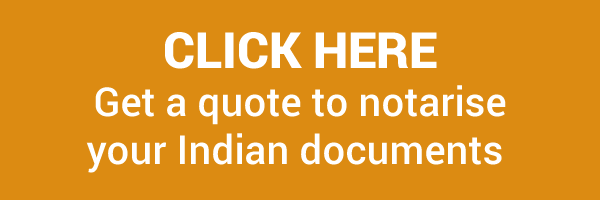I have been asked to get my documents stamped with an apostille and then attested by VFS. Why?
Good question.
The reality is that when people don't know things - they guess. Sometimes it's an educated guess, and sometimes it's just a guess based on what they think is the right thing to do. If your lawyer in India is unfamiliar with the international conventions, such as the Apostille Convention, then it's possible that when they ask you to get your documents signed in Australia, they'll also want you to have your documents stamped with an apostille AND stamped by the Indian Consulate. But are both required?
You could say that a safe rule of thumb is that you can't have too many stamps. The more stamps you have, the more official your document will look, and the more likely someone looking at it will accept that it's sufficient for their purposes. This is practical advice, but it isn't great legal advice because there are actually international laws and conventions that govern how documents can be signed internationally and accepted in other countries.
In the case of documents signed in Australia but used in India, the Apostille Convention will allow documents to have been signed and notarised in Australia as well as stamped with an apostille from the Department of Foreign Affairs and Trade to be accepted in India without any further stamps from other officials or authorities (ie, like VFS or the Indian Consulate). That's it.
If your lawyer in India has asked you to have your document also stamped by the Indian Consulate, then the chances are that they're not familiar with what's required by international law and convention or the people/offices that he's dealing with aren't familiar. For them, the safe bet is to have a stamp from the Indian Consulate. The downside for you is that it just means the process becomes more expensive and takes more time.
After you have your document stamped with an apostille, VFS (on behalf of the Indian Consulate) will ask you to sign a disclaimer/undertaking confirming that you're aware that you're not required by international law and conventions to have your document stamped by the Indian Consulate once it's been stamped with an apostille.
Every time we notarise documents for India, we recommend our clients to scan their document for their lawyer in India to check whether it would be sufficient. Do NOT ask whether an apostille is required and do NOT ask whether attestation by VFS/Indian Consulate is required - otherwise, they may just say 'yes' without really knowing why or committing you to a course of action that's going to incur more cost and take more time.
What next?
To obtain a quote on our notary public services for India, please visit https://www.notary-parramatta.com.au/notary-fees/.
Acknowledgements
This blog is supported and maintained by Phang Legal. Phang Legal is a leading provider of notary public services in Sydney. With offices conveniently located in Parramatta, Phang Legal supports and services the Indian community across Sydney with readily available and easily accessible notary public services at highly competitive rates.
For more information regarding notary public services for documents going to India, view our notary publications at https://www.notary-parramatta.com.au/jurisdiction/india-notary/.
Frequently asked questions regarding our notary public services can also be found at https://www.notary-parramatta.com.au/faqs/.
For Hindi to English translation services by NAATI accredited translators, see https://hindi-naati-translation.blogspot.com.au/.

Ern Phang
Notary Public
Ern Phang is the solicitor director of Phang Legal and a notary public. Ern regularly writes about his experiences as a notary public, including the kinds of problems and solutions that his clients face when sending documents to India.
IMPORTANT: the information in this article is correct at the time of publication, however the law constantly changes. This means you should always refer to the most recent articles because we try to update this blog on a regular basis with the most current information.

